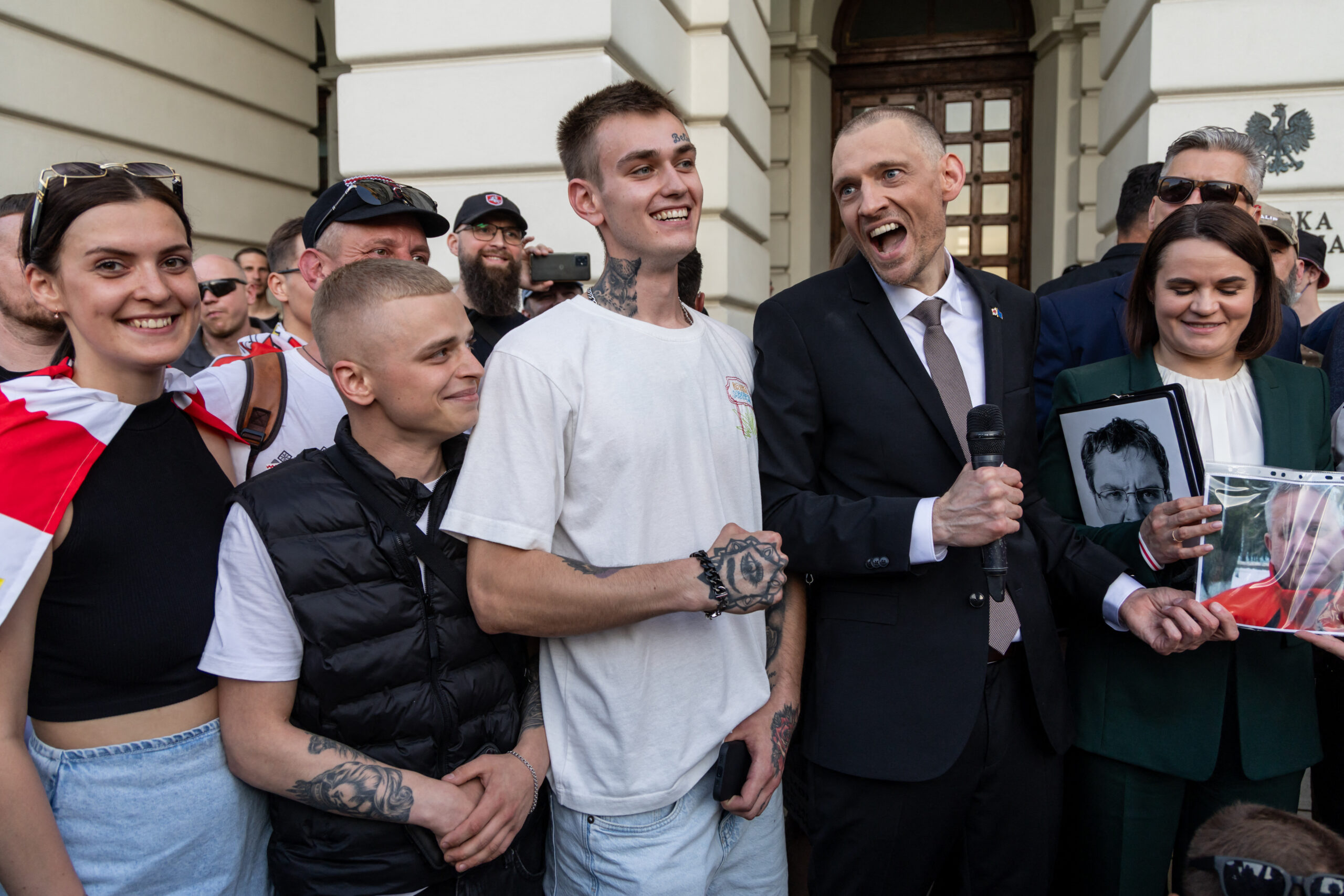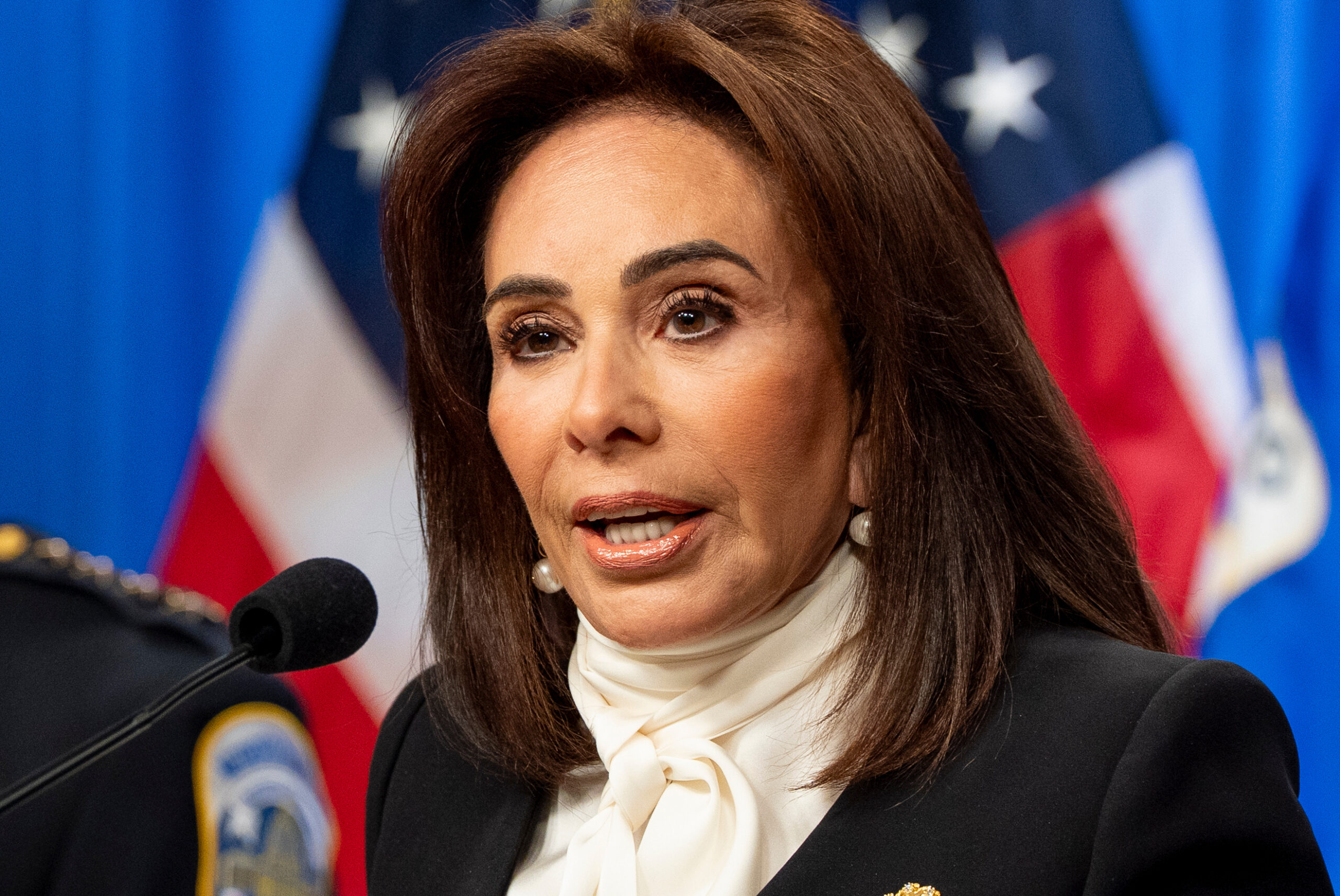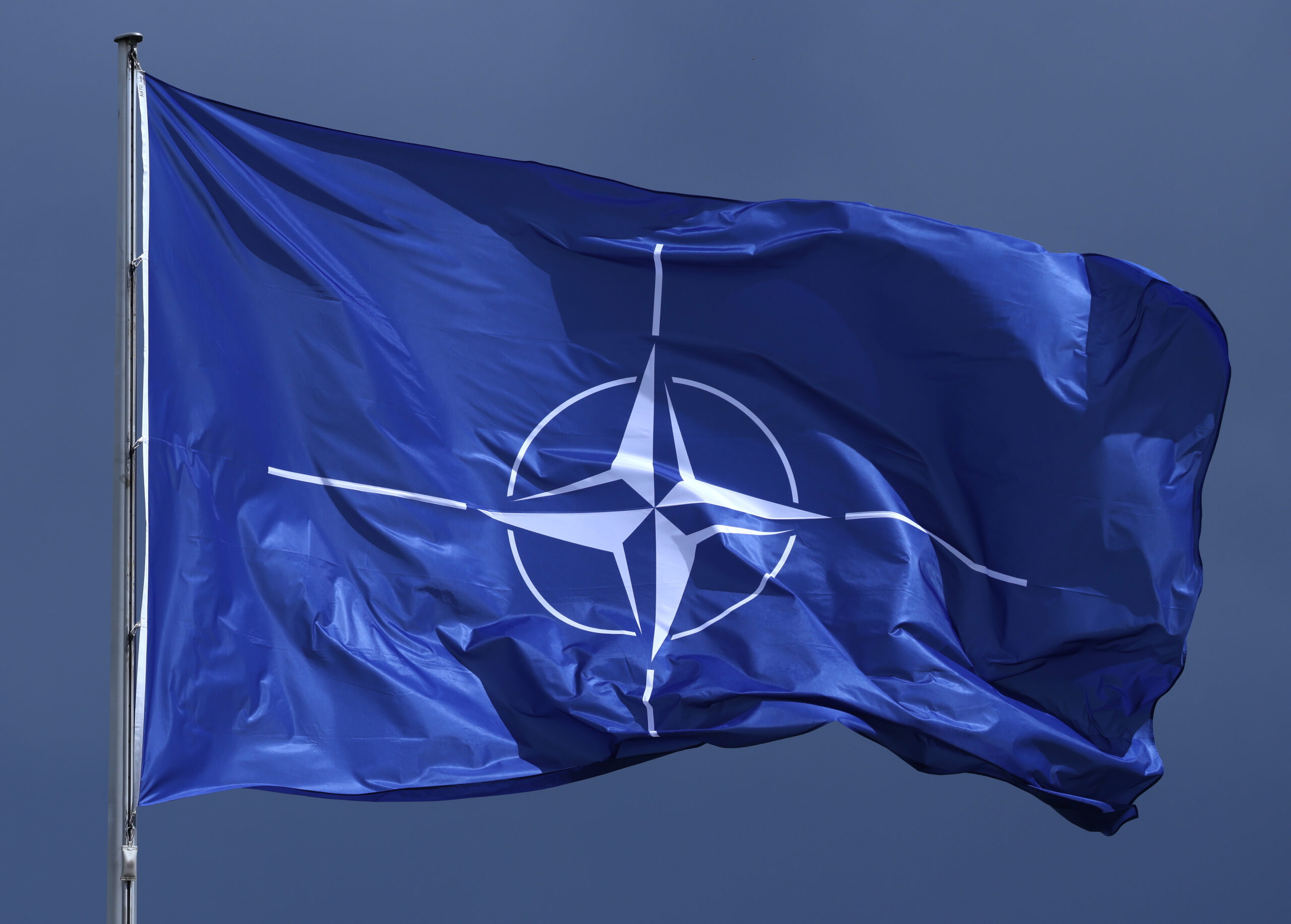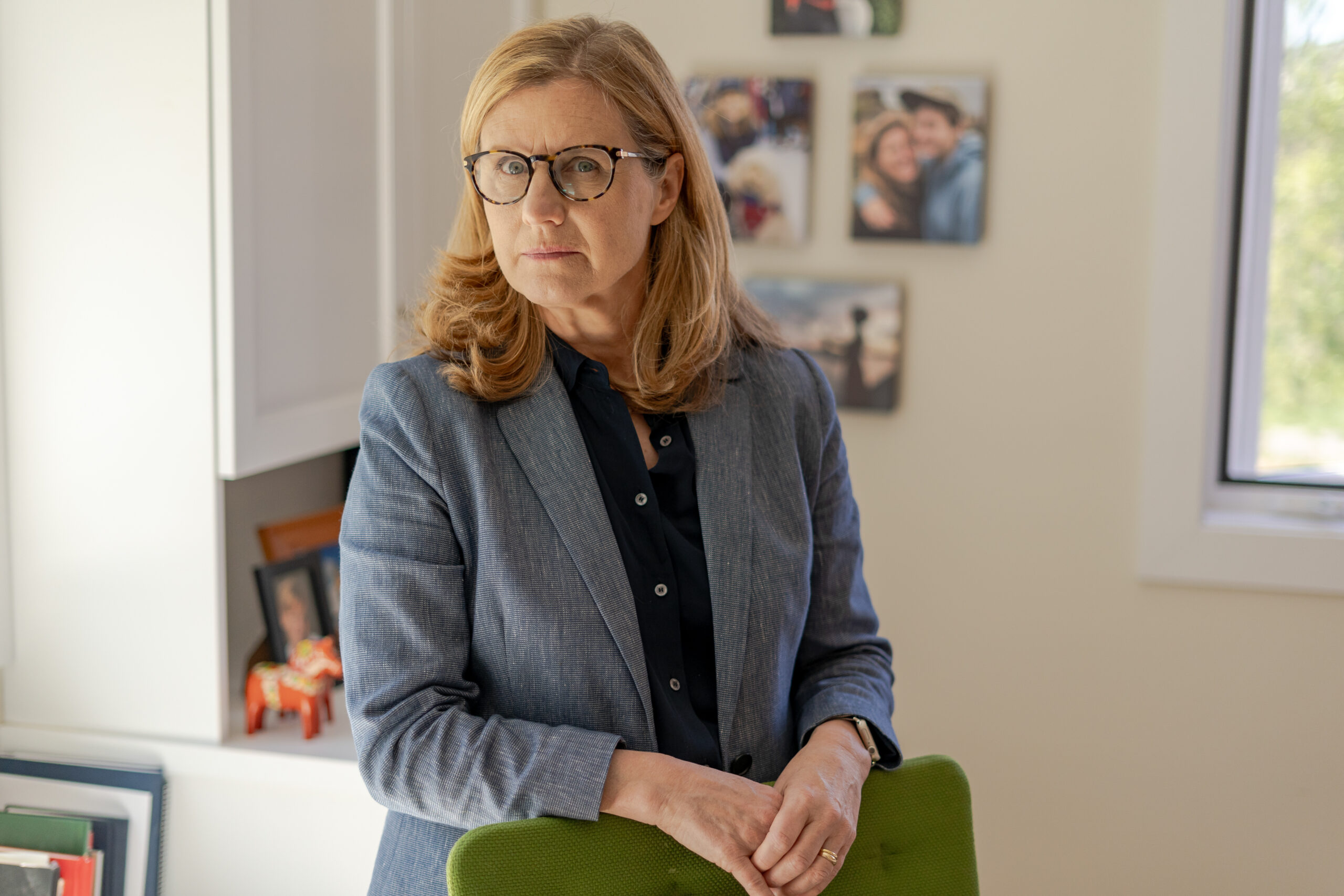A bus carrying 14 political prisoners with bags over their heads hurtled through the lush Belarusian countryside one morning last month, its destination unknown. Five years after President Alexander Lukashenko launched an unsparing crackdown on dissent in the former Soviet nation, some of the captives feared they were about to be executed.
Among the group was the prominent dissident Siarhei Tsikhanouski whose wife, Sviatlana Tsikhanouskaya, became the face of the Belarusian opposition movement after his arrest in 2020.
As the bus approached its destination, their minders from the Belarusian security services — which still goes by its Soviet name the KGB — removed the bags from their heads but told them to keep their eyes fixed on the floor. “We kept looking ahead all the same,” said Ihar Karnei, a Belarusian journalist who was among the group and had been imprisoned for two years. “We were interested: Where were they taking us?”
The bus pulled up to a field not far from Belarus’ border with Lithuania. The door of the van flew open, and they received a surprising greeting: “President Trump sent me to take you home.”
The man speaking to the bewildered prisoners was John Coale, one of President Donald Trump’s lawyers and now a deputy special envoy to Ukraine. It took a moment for the reality of what was happening to sink in.
“They were terrified,” Coale recalled in an interview with POLITICO Magazine. “Opening that door and getting them to realize that ‘You are free’ was quite a moment.”
The prisoner release, a goodwill gesture by the Belarusian leader, marked the continuation of a cautious diplomatic opening between the United States and Belarus. The fraught relationship between the two countries came to a standstill in 2020 when protests against rigged elections were met with mass arrests and thousands of people were swept into the country’s vast prison system.
But the release also wouldn’t have happened without Coale’s efforts to forge a relationship with Lukashenko, including over a long lunch with vodka toasts.
“I did two shots, didn’t throw up, but did not do a third one,” said Coale.
The episode offers a window into the highly personalistic way in which foreign policy gets done during Trump’s second term in office, as the president has tapped a slew of close friends and allies to serve as his envoys and implement his agenda abroad. Critics have balked at their lack of experience; after all, they smirk, can real estate magnate Steve Witkoff really lead negotiations to conclude Russia’s war on Ukraine, tackle Iran’s nuclear program and end Israel’s war in Gaza?
But the envoys bring the prospect of a direct line to the president and the chance to bypass State Department bureaucracy. They are also free to say and do things that traditional U.S. diplomats might not be able to.
“It’s sort of easier to have an eye-to-eye conversation with the president’s right hand,” said Artyom Shraibman, a nonresident scholar at the Carnegie Endowment for International Peace.
Dispatching the national security advisor or secretary of State (currently Marco Rubio in both cases), could be seen as a full legitimization of Belarus’ isolated president, said Franak Viacorka, chief of staff to Tsikhanouskaya, the opposition leader.
“But if we speak about envoys — an envoy’s task is to make deals, to solve crises,” he said.
Coale’s adventures in Belarus began with a call from the State Department in late April with a special request. Was he willing to go to Minsk to meet with Lukashenko, a man often described as Europe’s last dictator?
“Fine,” said Coale. Could he fly out the next day? “Not fine,” he replied. “But I did it anyway.”
The 78-year-old Coale is a plainspoken, veteran litigator perhaps best known for helping to broker a $386 billion settlement from Big Tobacco in the late 1990s. He’s also had a winding political life; a longtime Democrat, Coale endorsed John McCain in 2008 and befriended Sarah Palin, before backing Democrat Martin O’Malley’s 2016 presidential bid.
In 2021, he led Trump’s longshot lawsuit against social media companies, accusing them of censorship. “The woke stuff has moved me to the right,” he said in one interview. He first met Trump some 20 years ago through his wife Greta Van Susteren, the former Fox News host who has interviewed the president on numerous occasions.
Days after the call, Coale and a handful of U.S. diplomats crossed the border from Lithuania into Belarus, stopping on a country road to swap out the diplomatic license plates on their vehicles so as not to attract attention.
They arrived at Independence Palace, Lukashenko’s residence in central Minsk which, with its glass facade and swooping metal roof, is the size of a small airport terminal. “It’s so big that Tom Brady couldn’t throw a pass from one end of the lobby to the other,” Coale said. The imposing complex on the capital’s Victory Avenue was built as a symbol of the country’s independence, according to the website of the Belarusian president.
That sovereignty was always tenuous. One of Russian President Vladimir Putin’s closest allies, Lukashenko has long relied on subsidies from Moscow to prop up his ailing economy. In 2022, Belarus was used as a staging ground for Russian troops in their full-scale assault on Ukraine which further cemented his alienation from the West.
Lukashenko has ruled Belarus since 1994, preserving many of the institutions and habits of the country’s Soviet past. He has proven skilled at playing Russia and the West off against each other, flirting with Washington and Brussels to get Putin’s attention or secure relief from economic sanctions imposed on the country. Political prisoners have often been used as a bargaining chip. In 2015, Lukashenko released all those deemed wrongfully detained, prompting Europe and America to lift some sanctions.
The reprieve was to be short-lived. Over 5,000 people have been convicted of politically motivated charges over the past five years, according to the Belarusian human rights organization Vyasna, and some 1,150 remain in prison. Trump has made freeing wrongfully detained Americans a priority of his foreign policy, creating an opening for authoritarian leaders like Lukashenko to get his attention. Within a week of Trump’s inauguration in January, Belarus unilaterally released U.S. citizen Anastasia Nuhfer from prison.
“Lukashenko is afraid of Trump,” said Viacorka. “[He] knows very well how to deal with ordinary politicians, but he doesn’t have a clue how to deal with these strong and unpredictable leaders like Trump.”
Three more political prisoners were released in February, after Deputy Assistant Secretary of State Chris Smith quietly travelled to Belarus, becoming the most senior U.S. official to visit the country in over five years. By April, they were on the cusp of getting another American citizen released and dispatched Coale in a bid to seal the deal.
Over a long lunch in the palace, Coale was tasked with getting to know the garrulous Belarusian leader. “They told me to charm him. To yuck it up with him, so I did that,” he said. “[Lukashenko] brought up stuff about the State Department and I said, ‘Yeah all they want to do is blah blah blah,’ so he loved that.”
Lukashenko struck Coale as smart, savvy. “He does want better relations with the United States,” Coale said, adding that the Belarusian leader seemed keen to play a role in negotiations regarding the war in Ukraine.
At some point vodka — Lukashenko’s own personal brand — was brought out and the toasts commenced. The Belarusian president offered a toast to Trump. Smith, the State Department official, nudged Coale to reciprocate, as is customary in the region. Coale followed suit with his own toast to Lukashenko, and soon, he began to worry about his stomach.
As the afternoon wore on there were more toasts, and while there was little talk of politics, the two men got to know each other. A relationship was developing. “It was all fun,” Coale said.
Lukashenko seems to have agreed. Hours later, the American delegation got what they had come for as the Belarusian authorities handed over Youras Ziankovich, a naturalized U.S. citizen who was arrested in Moscow in 2021 and accused of plotting a coup against Lukashenko. The U.S. government deemed him wrongfully detained earlier this year.
Discussions continued behind the scenes into the summer and by June, another prisoner release was set in motion.
When she awoke on the morning of Saturday June 21, Sviatlana Tsikhanouskaya had little idea that she was about to be reunited with her husband, Siarhei. A popular YouTube blogger, he was swiftly arrested after attempting to run against Lukashenko in the 2020 presidential elections.
Tsikhanouskaya, a soft-spoken former teacher, took up her husband’s mantle after his arrest and was herself quickly forced into exile in Lithuania, becoming the most recognizable face of the Belarusian opposition. For five years she has shuttled between global capitals to raise awareness about her country’s political prisoners, often carrying a folder bearing a photograph of her husband.
On the morning her husband was released, Tsikhanouskaya was flying back from Poland to the Lithuanian capital, Vilnius. She knew that Trump’s special envoy to Ukraine, Keith Kellogg, had been in Belarus the night before with Coale and that negotiations about a prisoner release were underway. She speculated with her chief of staff, Viacorka, who might be released but didn’t dare expect her husband would be included.
Having been held without access to anyone on the outside for over two years, Siarhei was on a shortlist of some 200 prisoners deemed a priority for release by Belarusian human rights defenders on humanitarian grounds. The majority of the 14 people who were about to be released were citizens of other countries who had been swept up in the crackdown, or, had some kind of affiliation with the West.
It wasn’t until the morning of the release that Coale learned the final details of the prisoners to be freed.
As Tsikhanouskaya made her way back to Vilnius, the bus carrying her husband and 13 other political prisoners made its way to the Belarusian border with Lithuania, after the KGB handed them over to Coale and representatives from the State Department.
By the time the now-former prisoners made it to the border, it was hours since they had been fed. Many were gaunt after years of meager prison rations. Siarhei, once a bear of man, emerged from prison unrecognizable with hollow cheeks. “For some reason, in one of our cars was a whole basket of little Tootsie Rolls,” said Coale, which they passed around the group. As they waited to be processed into the country, Coale and the other diplomats passed their cellphones around so people could call their loved ones and let them know that they had been released. “Nobody had any idea this was happening,” he said.
In the Vilnius airport, Tsikhanouskaya received a call from her husband, with whom she hadn’t had any contact in over two years. “When I heard the voice of my husband on the phone, it was a huge surprise,” she said. He told her: “My dear, I am free.”
While Trump’s efforts to broker an end to the war in Ukraine have run headlong into Putin’s intransigence, Tsikhanouskaya hopes that her country could offer the diplomatic victory that Trump craves so dearly.
“Belarus can be a success story for President Trump,” she said. “[A] free, independent Belarus is in the interest of the USA as well.”
Lukashenko also senses an opportunity to return to relevance as the U.S. president seeks to strike a deal between Russia and Ukraine, said Shraibman of the Carnegie Endowment. “He wants to be relevant to the peace process. He wants to speak to the big guys. This is a prize in itself.”
But Belarus isn’t Switzerland. “Lukashenko is so, so deeply dependent on Putin and Russia these days that it is simply beyond the power of the United States, no matter how hard it tries, to decouple these two countries,” Shraibman said.
Coale isn’t too preoccupied with Lukashenko’s diplomatic dance. “That’s for Rubio to worry about.”
“I look at the thing of, can I free some more people,” he told me. “And if it plays into my purpose and what I’m trying to do, I don’t care.”




